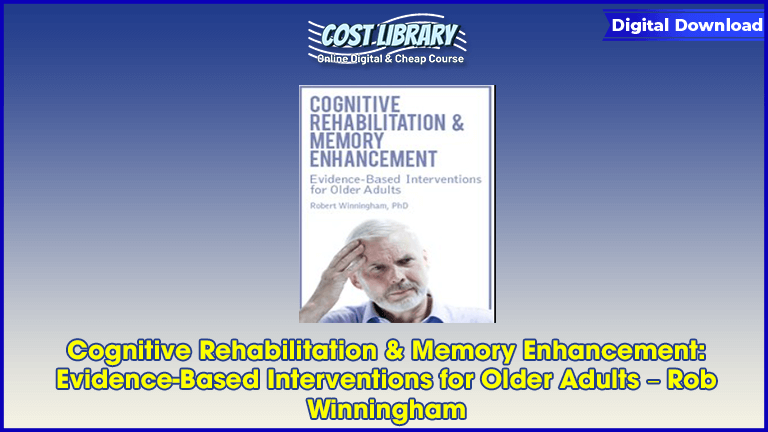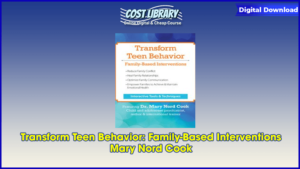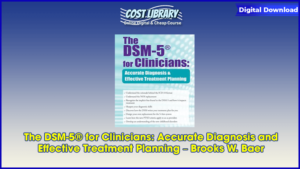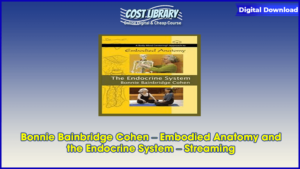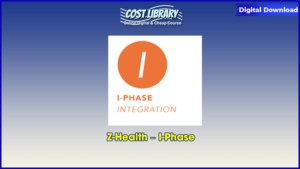Cognitive Rehabilitation & Memory Enhancement: Evidence-Based Interventions for Older Adults – Rob Winningham
Faculty:
Rob Winningham
Duration:
6 Hours 2 Minutes
Format:
Audio and Video
Copyright:
Mar 27, 2018
Description
Techniques to Slow, and Even Reverse, Memory Problems
Millions of older adults are suffering from impaired memory and attention. These deficits can affect where people can live, how much support they will need, and their quality of life. Although recent research has found that memory enhancement interventions are effective at preventing further decline and improving memory abilities, these resources are not widely available to professionals who work with older adults or people who have experienced traumatic brain injury. In addition, very recent research has found that physical exercise, nutritional changes, and social support interventions can improve cognitive ability and quality of life. Once again, however, the necessary resources have not always trickled down to the people who can use them.
In this cutting-edge recording, you will learn up-to-date information about memory, aging, and dementia. Learn how to implement evidence-based interventions to slow, or even reverse, memory problems. Gain web access to over 300 cognitive rehabilitation activities and social support interventions for community settings. Most of these activities and interventions are appropriate for people who want to be proactive in preventing memory loss as well as those who have mild cognitive impairment, early stage dementia, or cognitive deficits after a stroke. Learn how to take advantage of preserved cognitive abilities that allow even mid-stage dementia patients to learn new skills. Finally, learn how to motivate their apathetic and unmotivated residents and patients so you can take advantage of these breakthroughs.
Handouts
Manual – Cognitive Rehabilitation & Memory Enhancement (3.85 MB) 82 Pages Available after Purchase
Outline
USE IT OR LOSE IT: MAXIMIZING MEMORY ABILITY
Latest research related to the “Use It or Lose It†theory of memory and aging
52 cognitively stimulating activities for older adults
Cognitive enhancement intervention studies: What works and what doesn’t
MEMORY AND COGNITION
Why do cognitive abilities change as we get older?
What cognitive abilities decrease in older adulthood?
What cognitive abilities are preserved in older adulthood?
Interactive Lab: Communicating with patients/ residents as well as family members about memory and dementia issues
MEMORY AND THE BRAIN
Neuropsychology basics
Paying attention: The importance of the frontal lobes
Frontal lobe: Traumatic brain injury (TBI) and mild cognitive impairment (MCI)
UNDERSTANDING DEMENTIA AND MEMORY LOSS
Different types of dementia
Delirium: The importance of recognizing it and getting treatment
Symptoms and courses of the different types of dementia
Pharmacological treatments for dementia: A primer
Patients with traumatic brain injury
Patients with mild cognitive impairment
DEVELOPING YOUR OWN COGNITIVE ENHANCEMENT PROGRAMS
Where, when, and how often
Screening participants
Components of an effective cognitive enhancement program
Designing group-based programs for people of varying abilities
20-day curriculum of cognitive enhancement activitie
COGNITIVE REHABILITATION ACTIVITIES
Password-protected website
How to use it
Tools readily printed and implemented
Activities for improving cognitive abilities
Introduction to the activities
Specific cognitive abilities improved by each activity
Interactive Lab: Practice cognitive rehabilitation activities in small groups
MOTIVATING DEPRESSED, APATHETIC, AND ANXIOUS CLIENTS
Apathy
Depression
Agitation
How to motivate people to get the most out of therapy and activities
Faculty
Rob Winningham, PhD,
ROB WINNINGHAM, PhD, has over 20 years of experience working on applied memory issues and has developed novel approaches to maximize the efficacy of physical, occupational, and speech therapy. He is a popular continuing education presenter and strives to provide information and resources that can be used immediately. He creates brain stimulation activities for thousands of communities and rehabilitation facilities as a part of Dr. Rob’s Cranium Crunches on activityconnection.com. Dr. Winningham is a full Professor and Chair of the Behavioral Sciences Division at Western Oregon University, where he manages the Psychology and Gerontology Departments.
Speaker Disclosures:
Financial: Robert Winningham is a professor at Western Oregon University. He receives a speaking honorarium from PESI, Inc.
Non-financial: Robert Winningham has no relevant non-financial relationship to disclose.

